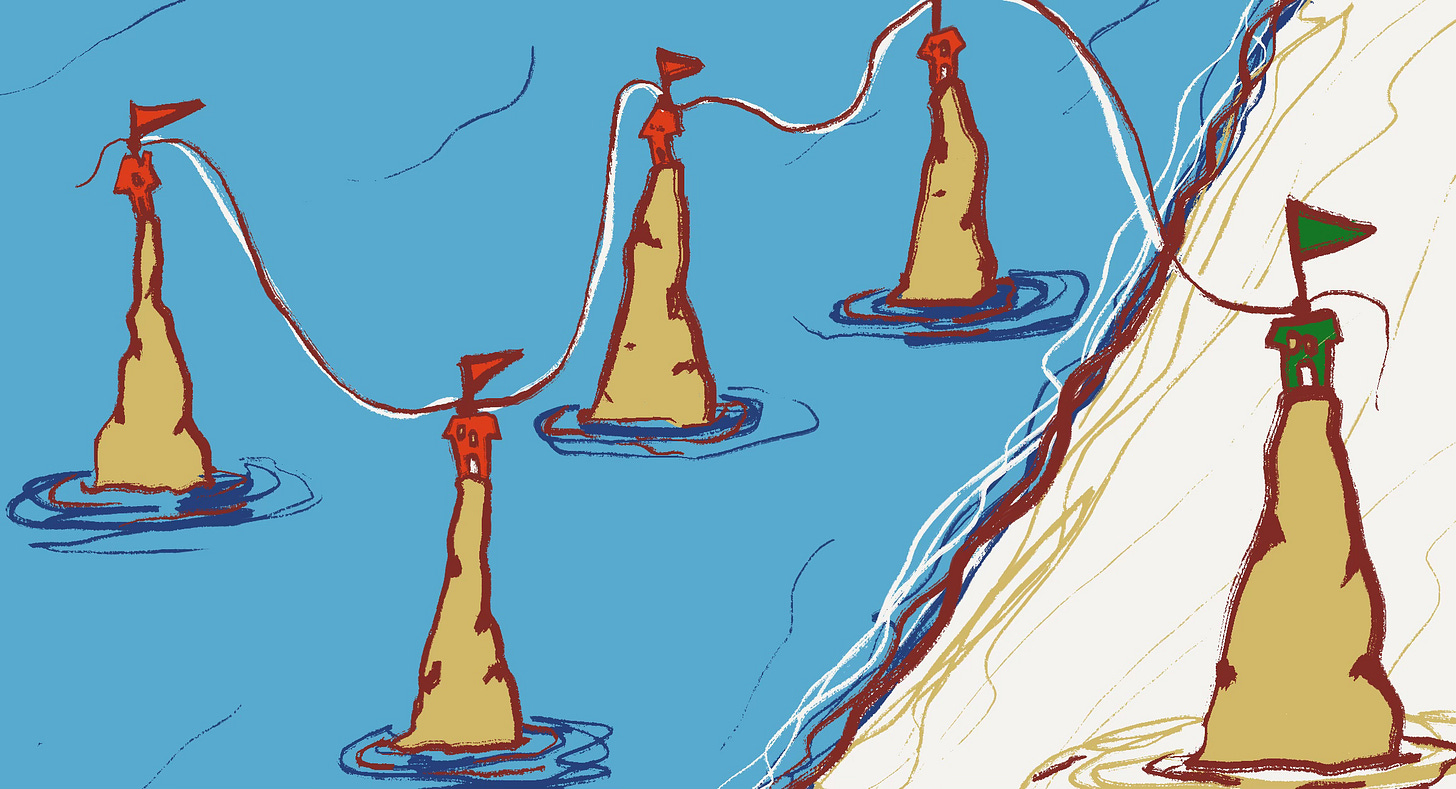The long game that powers creativity
Rethinking venture growth beyond short-term wins.
“Strategy without tactics is the slowest route to victory.
Tactics without strategy is the noise before defeat.”
— Sun Tzu, The Art Of WarStrategy is the discipline of setting horizons. The more you fixate on the immediate, the weaker your future growth position. Equally, small choices guided by vision create strong, distinct brands. Everyday decisions, in business and in life, compound. The key, then, is to ensure your everyday operations contribute meaningfully to the long game you wish to win.
Does this sound a little mathematical? There are many synergies between finance and creativity, and therefore we can learn much about capturing value by looking at where they overlap. Notably, both play with compounding value over time.
The principle is this: choose investment over speculation. The problem with the short-term is that it’s often volatile and, without a clearer vantage point, volatility can feel overly risky or even catastrophic. To invest means that you need not speculate. You trust the real, inherent value of your creations and your company which holds it. With this focus, market volatility is easier to recognise for what it is: small ocean waves bumping up against your ship. Not a sinking storm. You cannot ignore your immediate reality entirely, but with a larger vision for longevity, your daily operations are grounded to serve you both now and later.
Revenue is short-lived without longevity. What I often see in creative industries — theatres, entertainment producers, arts and culture organisations — are operating systems that push middle and senior managers to fixate on standalone seasons, and then reset, rinse, and repeat for the next. Ensuring your shows or annual program does well is important and so is understanding how those shows contribute to your overall brand equity and market position. Much of this is driven by funding sources that favour season-specific outcomes, but to have a truly resilient business means that you choose to propagate a revenue model that first-and-foremost prioritises lasting value creation.
If your venture is stagnating in growth, ask yourself how much value it creates over time. Some businesses remain healthy for decades yet plateau because they never outgrow the immediate. Sometimes growth isn’t needed. But often, they are in cities that are starved for growth. Stagnation signals a misaligned strategy, or perhaps a poorly articulated one, within their daily operations. Without it, teams lack the foresight to know what activities are genuine value drivers and which are a distraction.
It’s like leading a crew to chop furiously through a forest without first climbing the canopy to see where the forest goes, how it bends, and therefore which direction to take.
Are short-term gains vanity metrics, or building blocks of lasting value? Tactics without strategy are just noise.



